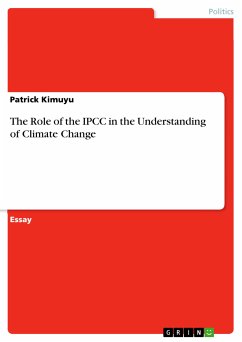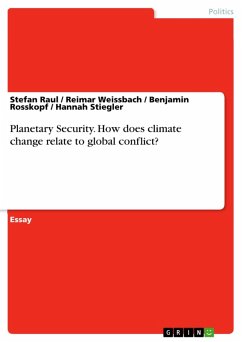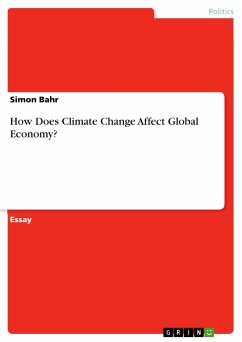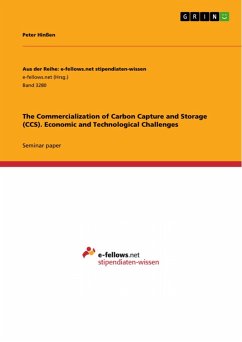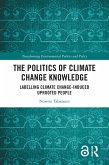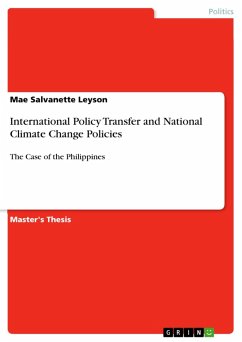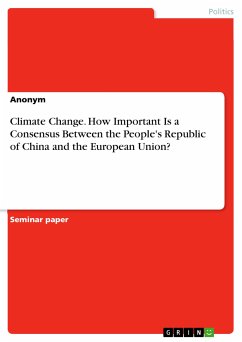Essay from the year 2016 in the subject Politics - Environmental Policy, grade: 1, Egerton University (Public Health), course: Climate Change, language: English, abstract: Climate change seems to be a unique phenomenon owing to the numerous controversies surrounding it. This is why there exists a great divide between environmentalists and their challengers over the issue of climate change. To the present, the debate on climate change has taken diverse perspectives in which the critical issue is whether climate change is a factual or false phenomenon. In order to enhance understanding over the issue of climate change, a number of international agencies have been formed. One of the most proactive agencies that have immense contribution to the issue is the Intergovernmental Panel on Climate Change (IPCC). This scientific intergovernmental body was established in 1988 by the United Nations Environment Programme (UNEP) and the World Meteorological Organization (WMO). Following its endorsement by the UN General Assembly the same year, IPCC became one of the organizations under the auspices of the UN. Its core responsibility is to review and assess scientific, socio-economic and technical information related to climate change and prepare assessment reports for the United Nations Framework Convention on Climate Change (UNFCCC). Its reports focus on the risks of human-induced climate change, as well as, its potential socio-economic and environmental impacts. As such, IPCC reports propose the most appropriate mitigation approaches to climate change. Since its inception, IPCC has contributed immensely to the assessment of climate change. Therefore, this paper provides a comprehensive discussion on IPCC's contribution to the climate change debate. It will also present a critical assessment of the linkage between the agency's values and interests, its advocacy positions and its use of science.
Dieser Download kann aus rechtlichen Gründen nur mit Rechnungsadresse in A, B, BG, CY, CZ, D, DK, EW, E, FIN, F, GR, HR, H, IRL, I, LT, L, LR, M, NL, PL, P, R, S, SLO, SK ausgeliefert werden.

